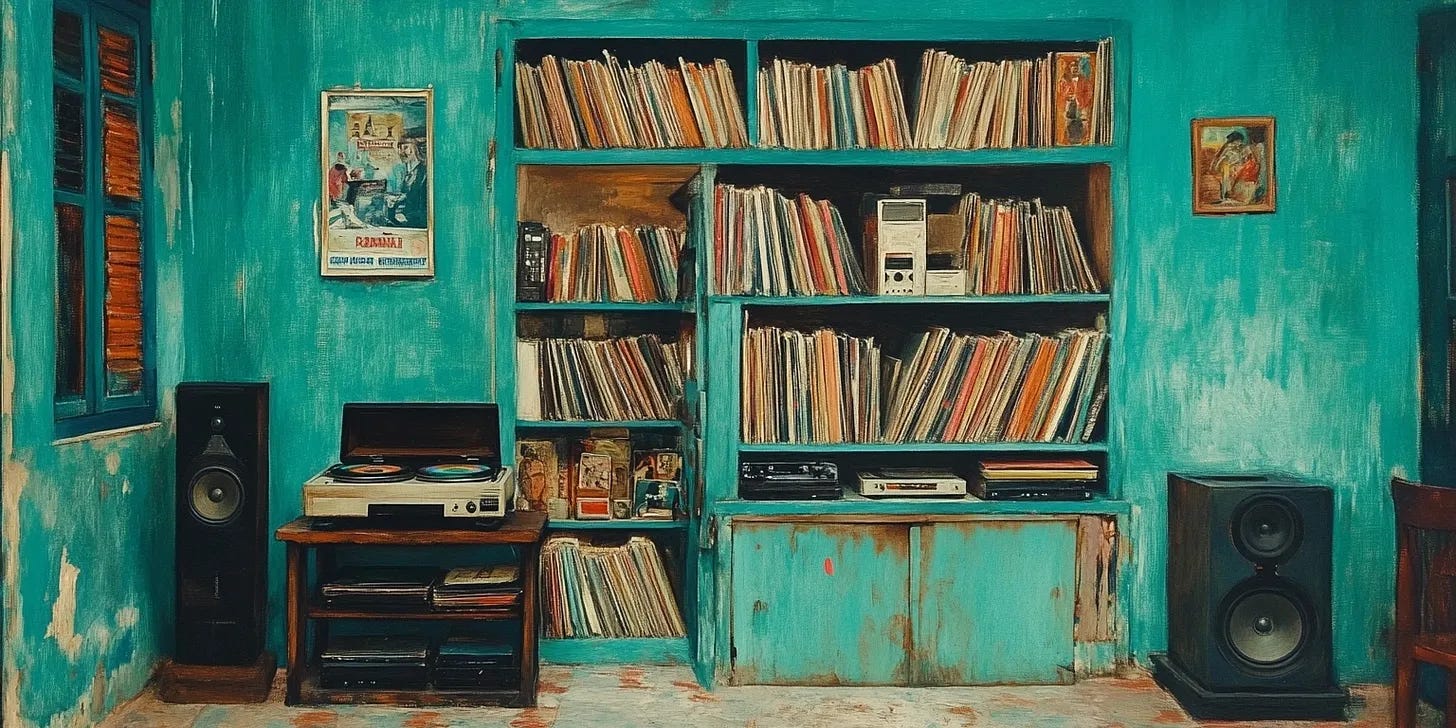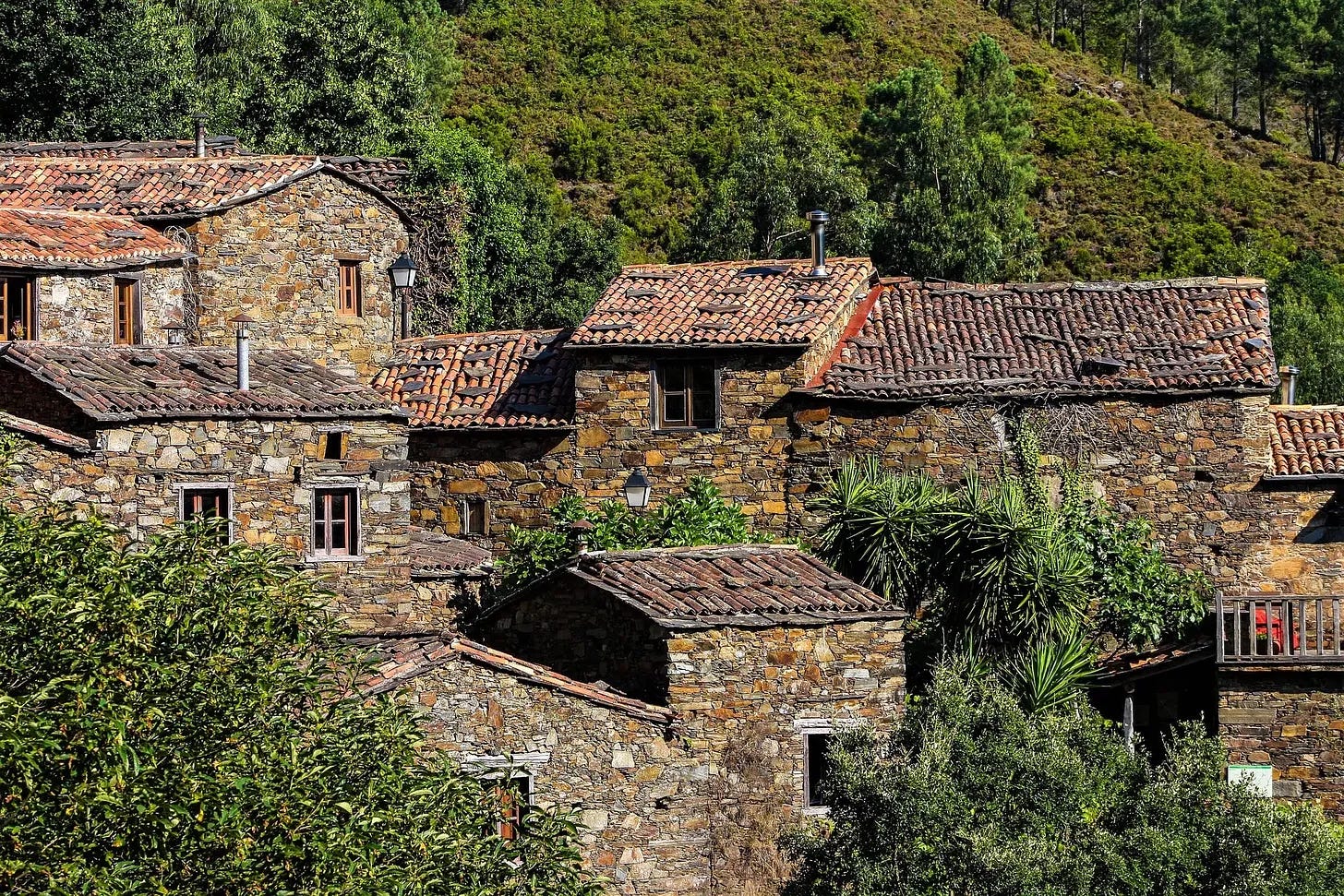My Favorite Posts of the Year
Closing out a year of Res Extensa with a callback to some of my favorites
This year was my most productive and engaging year of writing online I’ve had. When I started this thing a few years ago, I let myself have open season on topic ideas. I didn’t want to close off any avenues, and since my interests are so wide-ranging, I really didn’t know what I wanted to talk about here.
During the past year and a half, Res Extensa has collected a repertoire of themes that have made the writing (and precursor reading) more interesting and engaging for me, and also hopefully for you, the reader. Channeling into fewer topic areas gives more reason to subscribe as a reader interested in a set of themes, and the thematic constraint makes the topic selection and writing process easier, too.
I thought I’d close it out with a flyover of some of my personal favorites from the year. Hopefully those of you that have been reading throughout will find one or two you missed. And for any new subscribers, take a look and see some things that might’ve come before your time.
Thank you all for reading along. It’s been a transformative year personally, professionally, and in the world at-large, and hopefully 2025 will be a positive continuation of the journey.
Pace Layers
First up was my article deep diving on Stewart Brand’s profoundly rich concept of “pace layering”: how levels of complex systems change at different speeds, and how the slippage zones in between layers are where the adaptation (or conflict) happens. This was my most-read post of the year by quite a margin, thanks to the generous comment and boost from the author himself.
One of those ideas that once you learn about it, you’ll see it everywhere.
Things I Believe
I’d been fascinated with the idea of developing and publishing a core philosophy, so I did. Everything from the big to small ideas on how the world works, to what mental models I come back to repeatedly, and the worldview that shapes how I think and make decisions.
If more people did this, I’d be more interested in seeing their personal driving beliefs than a resume or CV.
The Exploration Instinct
On how humans are wired to explore, to search for novelty. Even in times of comfort and stability we still seek the unknown:
It turns out this instinct toward curiosity was naturally-selected, and built into your genes. This adaptive characteristic helped us diversify our diets and gene pools, find new territory for our growing populations, and enhanced our resilience to shifting environmental pressures like blights, droughts, and natural disasters.
As we’ve climbed Maslow’s hierarchy, some of these needs sound primitive. Our exploration instinct doesn’t have us spend much time hunting for food these days. But problems are inevitable, and we’re always encountering new ones. We solve them through the creation of new knowledge, and we only find that knowledge by exploring the unknown.
Comfort with Contradiction
A central part of that personal philosophy is that fostering a comfort with the contradictory is a superpower for a healthy and high-functioning life in a complex world. Sometimes one great thing comes at the expense of another. Trade-offs are the norm, and learning how to deal in the face of this kind of discomfort or uncertainty is essential.
Utopian ideas of the future require one to think in radical terms, and to lose hard-won progress. Radicals want to ignore trade-offs, to start over, to rebuild, to avoid the contradiction in the first place rather than grapple with it, ignoring Chesterton’s fences. If anything, school these days fosters more of this kind of radical thinking than its opposite.
The irony is that a discomfort with contradiction doesn’t get rid of it anyway. Just because we shouldn’t have to live with imperfections doesn't cause a bulldozed, greenfield solution to actually work. We often end up tearing things down and still have the same negative outcome we had before. It's George Orwell's "Where's the omelette?" every time.
And a hat tip to the work of Jonah Goldberg for years of commentary on this observation.
Escape the Algorithm
I thought a lot in the second half of the year about how algorithms and “feeds” shear away our agency. So many decisions are made for us through recommendation engines, “you might also like” sections, and self-reinforcing feedback loops. We never have to choose what movie to watch or song to listen to. We never have to think. And this isn’t a good thing. It’s eroding our ability to be discerning, to develop our own taste, and to listen, read, or watch intently.
When Order Conceals Chaos
This recent post had more reach than is typical. Sometimes simple ideas break through.
In this case, the desire for legibility so often causes us to destroy one form of purposeful, living order in favor of a sort of dead-yet-quantifiable one. We break apart functioning but messy-looking systems in favor of visually ordered versions we can measure.
The Best Books of 2024
2024 was a solid reading year. My roundup post got some attention. An eclectic list of works I’ve had in the pile for years, as well as many I just learned about and picked up.
Hoping to get even more interesting next year.
Book Notes: How Buildings Learn
I keep coming back to this book. Who knew a book on architecture (though I love that subject also on its own merits) would have such wide-ranging applicability to so many other fields? I can’t recommend it highly enough. I wrote this piece digging into its most interesting ideas.
Designing from Experience, Not Expertise
One of the subjects I tapped into after reading about it in How Buildings Learn was vernacular architecture:
There's this concept called "vernacular architecture" that refers to a style or design developed from local needs, using local materials, and reflecting local traditions. In contrast to formal architect's academic professionalization, the vernacular architect actually isn't an architect at all, by modern definitions. Building in the vernacular means an origin in practicality. Local people have immediate, on-the-ground needs to be met, and only a certain selection of resources available to them. Tradespeople, builders, the housing-occupiers themselves construct living spaces well-adapted to the local environment and its challenges.
The Bad First Draft
One of the recurring themes on Res Extensa is this idea that thinking and doing are inextricably bound up with one another. No matter how much you think and plan and ruminate, your idea will change form once it leaves your mind and takes shape in reality.
The “bad first draft” is a tool for starting, and not getting worried too early about perfecting the form or whether the thing is moving toward the goal. In fact, the process of the bad first draft itself is highly likely to change what that goal even is.
A powerful concept. And complements nicely what Steven Pressfield has to say in The War of Art, with Lorne Buchman’s work in Make to Know, and with what I’ve written previously on the act of getting started as a tool for crystallizing your goal.
How Cultures Accumulate
I plan to write more in the coming year about culture — about how we form traditions and norms for interacting with one another. One of the things that makes culture complex to understand and to build, but also makes them incredibly resistant to shocks, is how genuine culture develops gradually:
Culture is the accumulation of events, decisions, and actions an organization takes over a period of time. It's like a stack of sedimentary layers that gets averaged together. If you aren't proud of the previous 15 layers that you've deposited, you can't form a committee to pour a neat-and-clean new layer on top, washing away what came before. All you can do is change direction. From that point forward, the sorts of decisions you make will tilt the average in favor of the kind of culture you want to have. As each new deposit layers on, gradually turning the culture.
Gratitude and Resilience
Thousands of things take on new dimensions once you get older, get married, have kids, et cetera. One area for myself has been the power (and the importance) of gratitude as a means for hanging tough together. Resilient families, neighborhoods, towns, institutions all rely on a web of appreciation of each person for one another.
If I did my job right, you found something interesting here you hadn’t read before. Hopefully this resurfaced some stuff from the archives for newer readers, or simply those of you too busy that missed them the first time.
With that, I hope everyone had a healthy, productive 2024.
Cheers to you all for a fulfilling 2025.








